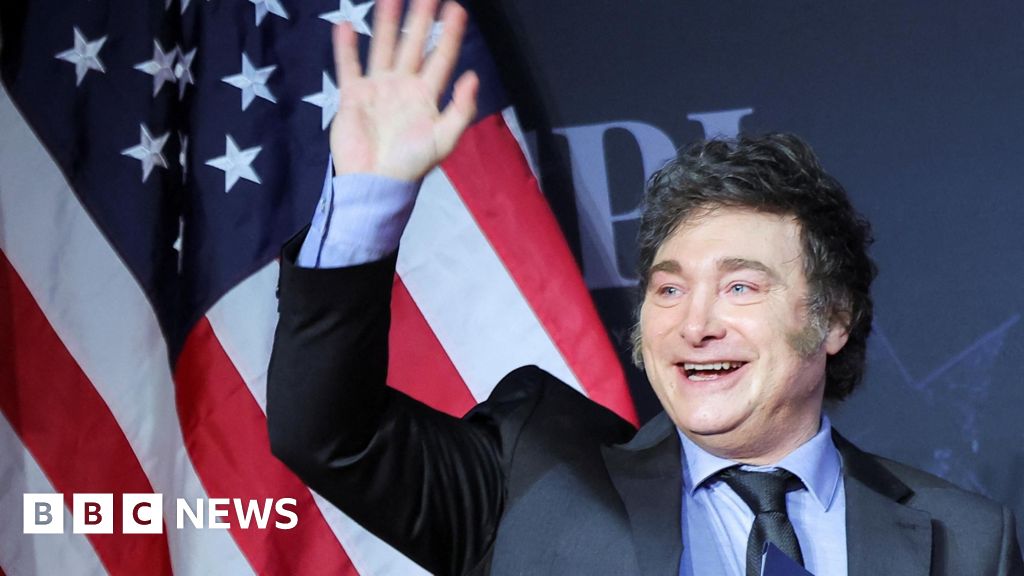ARTICLE AD BOX
By Zhaoyin Feng and Tessa Wong
BBC News, Washington and Singapore
image source, Getty Images
image captionXianzi, a 28-year old activist, has seen her life upended since the case beganXianzi sounds exhausted. "Sorry. I've been crying the last half hour," she tells the BBC over the phone from Beijing.
It is the day after a court ruled on the Chinese activist's landmark sexual harassment case against one of the country's biggest celebrities, which has made her the face of China's fledgling #MeToo movement.
But three years on, her journey has hit a dead end. The court threw out her case saying there was insufficient evidence.
Before our call, Xianzi had tried to contact a supporter through Weibo, the Twitter-like social media platform on which the 28-year-old has built a closely-knit following.
But she'd been fully blocked on Weibo following the court hearing, and so was her supporter, apparently because she was publicly advocating for Xianzi.
The realisation that she was now cut off from her online community had reduced Xianzi to tears.
"People's accounts are constantly getting suspended. There is no way for me to contact them. I've lost the chance to say thanks to them. The past three years have been all about Chinese feminists being separated from each other."
A growing clampdown
In 2018 as #MeToo caught on in China, Xianzi - her real name is Zhou Xiaoxuan, but she is better known by her pen name - was one of many women who began sharing accounts of sexual harassment.
In a 3,000-word essay that later went viral, she accused Zhu Jun - a host with state broadcaster CCTV - of sexually harassing her in 2014 when she visited his dressing room hoping to do an interview with him.
At the time she was a 21-year-old intern, while Mr Zhu was a household name in China, a familiar face to tens of millions for presenting the annual Spring Festival Gala television event.
A subsequent essay laid out more details, accusing him of groping her repeatedly for about 50 minutes despite her attempts to block him, and forcibly kissing her.
Their interaction was interrupted several times by staff briefly going in and out of the room, but she described being so frozen with fear and shame that she could not alert them. She said she only got out of the room when Mr Zhu was distracted while speaking with a crew member, which provided an opportunity for her to "slowly come to her senses".
"I was scared that offending Zhu Jun would affect my studies, so I didn't dare to fight back," she wrote at the time.
Mr Zhu has consistently denied all the allegations. He has said he is a victim of a smear campaign and he has endured "tremendous humiliation".
The day after her encounter, Xianzi reported the incident to the police. But, according to her, she was told to keep it to herself as Mr Zhu was a national example of "positive energy" - a state campaign aimed at promoting good behaviour - and therefore someone whose reputation could not be sullied.
So she kept quiet - until the #MeToo movement happened.
image source, Reuters
image captionZhu Jun is a prominent TV star in ChinaThe case gained even more notoriety after Mr Zhu sued her for defamation. She counter-sued him for "violation of personality rights", using a law that at the time was the closest thing to anti-sexual harassment discrimination.
Since then, Xianzi's life has been upended.
Born to a middle-class family in Wuhan, she moved to Beijing to study film directing when she was 18 and was working as a scriptwriter.
She has since quit, and these past three years has been living off her savings and sporadic income from freelance writing gigs. Her lawyer is only charging her a small fee.
Xianzi has been focused on fighting her legal battle and campaigning for sexual harassment victims - many of whom have approached her seeking advice - on her social media accounts where she has amassed more than 300,000 followers.
At the same time, authorities' efforts to censor her have intensified, shutting down discussions and barring her from posting on Weibo. Even the phrase "rice bunny", a Chinese synonym for the #MeToo campaign, has been removed from Chinese social media.
image source, Getty Images
image captionSupporters have shown up at her court hearings carrying protest signs, an increasingly rare sight in ChinaAt first, she circumvented this by passing her essays to supporters who posted on their accounts on her behalf. But then their accounts were also suspended.
Xianzi has also increasingly become a target of criticism, with some nationalistic bloggers accusing her of lying and alleging she was "colluding with foreign forces" to stir up controversy. This week a commentary on her case in the state-run Global Times claimed the #MeToo movement was being used by Western forces to "tear Chinese society apart".
Then, there were the legal setbacks. According to Xianzi, the court rejected her request to label the case as a sexual harassment lawsuit after a new court rule kicked in.
She also said that during the trial, the court gave her little opportunity to speak, and blocked her efforts to present what she describes as supporting evidence, such as video footage of the area outside the dressing room and a photo of her meeting Mr Zhu.
In 2014, she turned in a piece of evidence, a dress that she had worn on the day of meeting Mr Zhu. The initial examination found no traces of his DNA. But when she later requested further examination, she said she was told in court that the dress was "nowhere to be found".
She said she was also told by the court that it was "unnecessary" to compel Mr Zhu to testify.
China law expert Darius Longarino tells the BBC he finds the court's reasoning to be "unconvincing".
Some in China believe there were political motivations behind these court decisions.
On top of all this, Xianzi still has to grapple with Mr Zhu's defamation suit against her, where he is demanding 650,000 RMB ($100,000, £73,000) as compensation.
The BBC has attempted to contact Mr Zhu and his lawyers, but has not received any reply.
All of this has taken a toll on Xianzi. In a video shared by supporters last week, she appears despondent as she speaks to them shortly after leaving the courtroom in Beijing.
"I was 21 when the incident took place. Now I'm 28, I'm so tired… I don't know if I can summon my courage to fight another three years," she says, while nervously wringing a copy of China's civil law.
image source, Getty Images
image captionXianzi has come under increasing scrutinyShe tells the BBC that sometimes she gets anxious about if she can ever resume her career after such scrutiny. So she tries to distract herself - by watching a movie, or taking a nap.
Her activist friends, family, and boyfriend have been vital in giving emotional support.
But the most effective therapy for her has been to speak out through her essays and talking with her friends - "Talking is healing," she says - which is why the mounting censorship has been painful.
"If you prohibit people from saying they are hurt, then you are really trying to destroy them," Xianzi says. "I don't understand what I did wrong. Why do they want to destroy me?"
A heavy burden
Xianzi's case was in fact, the second high profile case in recent weeks to have come to a halt.
Earlier this month, prosecutors dropped charges against an employee of tech giant Alibaba who had been accused of raping a colleague on a work trip while she was drunk.
This was even though police investigations found the man had "committed indecencies" with her. The man was eventually fired from Alibaba and detained for 15 days.
Only very few cases of sexual harassment have made it to court in China. A high bar for evidence, which tends to demand video recordings or photographs of the actual incident, puts a heavy burden of proof on plaintiffs to prove their case, according to legal experts.
Some end up publicising their accounts online, usually because their employer or institution has failed to take adequate steps.
"These victims feel they have no choice but to reach out to the public, which reflects the failure of these institutions to address complaints. A victim should not need to publish their experience on Weibo for their employer to pay attention," says Aaron Halegua, research fellow at New York University Law School.
But doing this then puts them at risk of getting sued for defamation by their alleged harassers - and studies of such cases show that quite often they lose.
In January a new civil code of law came into effect in China, containing Article 1,010 which clearly specifies that a person can sue another if he or she has been sexually harassed, and that institutions and organisations must take measures to prevent such behaviour and investigate cases.
When it was first introduced last year it was heralded as a win. But with those making allegations of sexual harassment or assault facing a different reality on the ground, the legal system is sending a "mixed message", says Mr Longarino, a research scholar at the Yale Law School.
"There are many more downsides than upsides in standing up, which creates a chilling effect," he adds.
Mr Halegua says the law needs to be more explicit on what liabilities employers will face if they do not address sexual harassment, and also protect those who say they are victims from retaliation.
'Together we persist'
The outcome of Xianzi's case has been an obvious setback for China's #MeToo movement, say activists. Some see it as a bitter illustration of the increasing difficulties that alleged victims face.
Activist Liang Xiaowen tells the BBC that a 300-member feminist group on chat app Wechat was silenced shortly after Xianzi's trial. The members could still post in the chat, but couldn't see messages from others. "You are isolated, but you are not even aware of it," Ms Liang says.
Some are finding ways around the clampdown. After Xianzi's trial, her supporters found a way to communicate with her online by posting a song called Rose-coloured You. Part of its lyrics go: "You look exhausted but you never stop... I will remember what you did in this era. You were beyond yourself."
The silver lining in Xianzi's case has thus been its legacy, that it has significantly raised awareness of women's rights within China.
"#MeToo is important because of its rebelliousness... it is one of the last few meaningful voices that are still speaking out in China," says veteran feminist Lu Pin. "And it can't go away, because it stems from the true lived experiences of Chinese women."
Xianzi says she sees her case as having made "progress" in the fight for justice, and she is currently preparing to launch an appeal.
"Together we persist. It's already a victory to some extent," she says determinedly.
"I have never thought it's not worth [all the effort]. Not for one second."

 3 years ago
454
3 years ago
454








 English (US)
English (US)